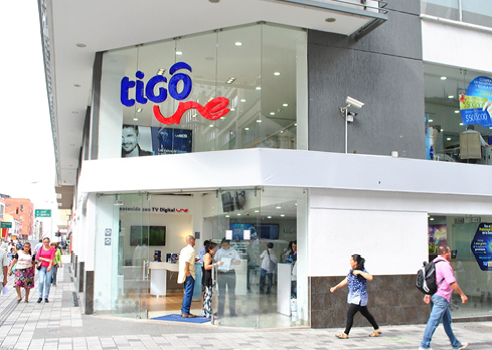Update: Grupo Sura Debt Downgrade Added to That of EPM, ISA, UNE-EPM, Isagen, City of Medellin

Wall Street bond rater Fitch Ratings announced July 20 that it has added Medellin-based multinational financial/insurance giant Grupo Sura and banking giant Bancolombia to a growing list of Colombian companies and municipalities suffering debt-ratings downgrades because of Colombia-wide economic problems resulting from the Covid-19 crisis.
“This decision on the part of Fitch Ratings follows a review of the average credit quality of the company’s portfolio and the transitory effects that the pandemic has had on the stream of dividends obtained from its investments in the financial and related services industry,” including the Suramericana insurance division and the Sura Asset Management division with its pension, savings, investment and asset management subsidiaries, Sura explained.
The credit downgrade “is supplemented by [Grupo Sura’s] interests as the main noncontrolling shareholder of Bancolombia,” the company added, noting that Fitch has cut Bancolombia’s long-term international rating to “BB+” with a “stable” outlook.
These downgrades were a “consequence of Colombia’s sovereign rating being downgraded from “BBB -to “BB +” and its effect on the country’s leading bank and other financial entities,” Sura noted.
Earlier, Fitch announced a downgrading of the debt ratings of Medellin-based utilities giant EPM to “BB+” from “BBB-” and maintained its “Negative Rating Watch.”
“EPM’s ratings reflect strong ownership and control by its owner, the City of Medellin (‘BB+’/Stable), which was downgraded to ‘BB+’/Stable from ‘BBB-‘/Negative,” according to Fitch. “The company’s business risk is low resulting from its diversification and characteristics as a utility service provider. The company’s ratings also reflect its somewhat aggressive growth strategy and solid credit protection measures supported by moderate projected leverage, healthy interest coverage and an adequate liquidity position.
“EPM’s Negative Watch reflects continued uncertainty regarding the closure of Hidroituango’s blocked Auxiliary Diversion System since April 28, 2018, and final cost over-runs of the [US$5 billion Hidroituango hydroelectric] project,” according to Fitch. “The possibility of major flooding downstream from the project exists until the diversion tunnel is closed. While the likelihood of this is remote, the environmental, financial and reputational damage to the company could be significant. Fitch’s expectation is that 300-MW of the project will be online by mid-2022.”
The downgrading of EPM debt came on the heels of Fitch’s similar rating cuts for Medellin-based electric-power giants ISA and Isagen as well as Medellin-based telecom-internet giant UNE-EPM (aka “Tigo-Une”), plus the city of Medellin’s municipal bonds.
The corporate and municipal debt-rating cuts follow on the heels of downgrades to Colombia’s sovereign debt — all caused by the Covid-19 crisis that triggered a huge decline in the national economy and employment, slashed tax receipts and forced massive government subsidies aiming to help the poor and working classes deal with the crisis.
Colombia’s national government had tried in early April to address this huge fiscal imbalance with a proposed tax hike on wealthier individuals and corporations.
But a clientelist-oriented Congress, which routinely hands out tax breaks to various interests in exchange for campaign contributions (as in all democratic nations) — and left-wing politicians who cynically stoked violent protests in May and June — weeks after the government had already discarded the tax proposal – have left the President Ivan Duque administration now trying to bring forth revised fiscal legislation, with a proposal due July 20, but carrying uncertain prospects.
Also hit by the new Wall Street debt-ratings-cuts are Colombia’s mostly stated-owned oil company Ecopetrol and its pipeline affiliate Ocensa, according to Fitch.
“The downgrade of Isagen’s and Tigo-UNE’s FC-IDRs [foreign currency issuer default ratings] reflects the cap imposed by the country ceiling of Colombia (‘BBB-‘), as these companies do not have substantial assets, offshore credit facilities, or cash held or generated abroad to reduce transfer and convertibility risk,” according to Fitch.
However, Fitch affirmed Isagen’s and UNE-EPM’s local currency IDRs, “which remain one notch above Colombia’s country ceiling,” according to the company.
“The downgrade of ISA’s FC and LC IDRs reflect its linkage with the Republic of Colombia, which owns 51.4% of the company. Fitch considers ISA’s two-notch differential above its parent appropriate.”
The main reason for the downgrades “reflects the deterioration of public finances with large fiscal deficits in 2020-2022, a rising government debt level, and reduced confidence around the capacity of the government to credibly place debt on a downward path in the coming years,” according to Fitch.
“Colombia’s gross general government debt-to-GDP is forecast to reach 60.8% in 2021, more than double the 30% level when Fitch upgraded Colombia back to the ‘BBB’ category in 2011.
“Fitch expects debt to continue to rise through 2022 and does not expect significant debt reduction over the medium term, leaving Colombia vulnerable to shocks. Fitch sees significant risks to the government’s fiscal consolidation plan, given the reliance on tax administration efforts and divestments, as well as the uncertainty of the impact of the pending tax reform,” the ratings agency added.
















